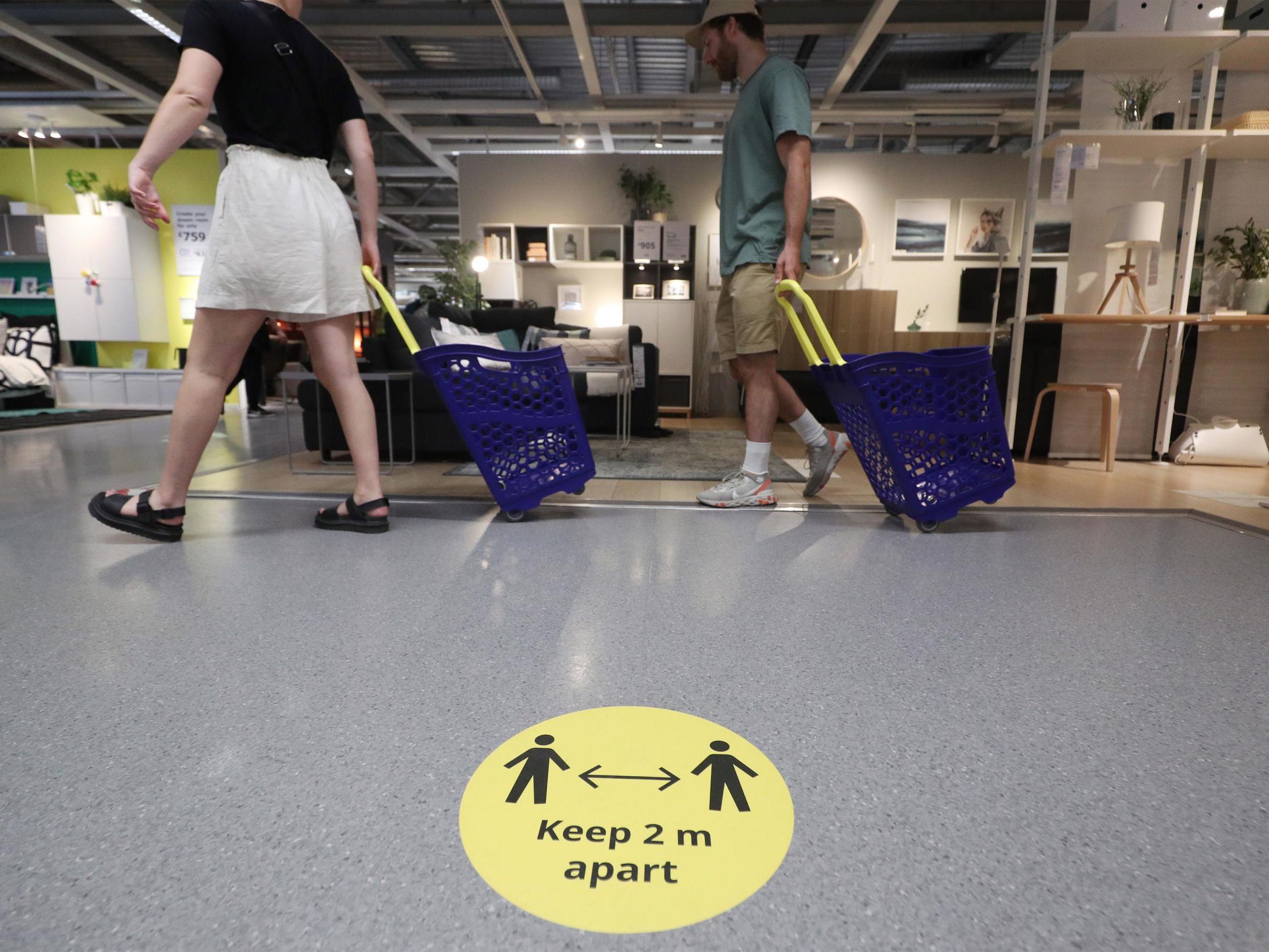Coronavirus: Reducing social distancing to one metre would double risk of infection, study suggests
Research comes amid calls from hospitality and leisure sector for UK to ease distancing guidelines

Your support helps us to tell the story
From reproductive rights to climate change to Big Tech, The Independent is on the ground when the story is developing. Whether it's investigating the financials of Elon Musk's pro-Trump PAC or producing our latest documentary, 'The A Word', which shines a light on the American women fighting for reproductive rights, we know how important it is to parse out the facts from the messaging.
At such a critical moment in US history, we need reporters on the ground. Your donation allows us to keep sending journalists to speak to both sides of the story.
The Independent is trusted by Americans across the entire political spectrum. And unlike many other quality news outlets, we choose not to lock Americans out of our reporting and analysis with paywalls. We believe quality journalism should be available to everyone, paid for by those who can afford it.
Your support makes all the difference.Reducing social distancing from two metres to one could double the risk of being infected with coronavirus, according to a comprehensive new study published amid growing calls for the UK to reduce its guidance to allow more businesses to reopen.
Researchers found distancing of a metre or more reduces the risk of infection to 13 per cent, compared to 3 per cent for less than a metre. However, analysis of modelling published in The Lancet suggests for every extra metre further away up to three metres, the risk of infection or transmission may halve.
In the UK people are advised to keep a distance of two metres from others, but there have been calls to reduce this to 1.5 metres like in other countries such as Germany to help the hospitality sector reopen.
Businesses such as theatres, pubs and music venues could be particularly hit hard by the two-metre rule, which would severely restrict the number of customers allowed inside.
The World Health Organisation (WHO) recommends people maintain a distance of at least one metre between each other.
Researchers looked at data from nine studies across Sars, Mers and Covid-19, including 7,782 participants.
Professor Holger Schunemann from McMaster University in Canada, who co-led the study, said: “Our findings are the first to synthesise all direct information on Covid-19, Sars, and Mers, and provide the currently best available evidence on the optimum use of these common and simple interventions to help ‘flatten the curve’ and inform pandemic response efforts in the community.
“Governments and the public health community can use our results to give clear advice for community settings and healthcare workers on these protective measures to reduce infection risk.”
According to the researchers, keeping at least one metre from other people as well as wearing face coverings and eye protection, in and outside of healthcare settings, could be the best way to reduce the chance of viral infection or transmission of Covid-19.
Thirteen studies focusing on eye protection found that face shields, goggles, and glasses were associated with lower risk of infection, compared with no eye covering.
They found that the risk of infection or transmission when wearing eye protection was 6 per cent, and 16 per cent when not wearing eye protection.
Evidence from 10 studies also found similar benefits for face masks in general, with risk of infection or transmission when wearing a mask 3 per cent, and 17 per cent when not wearing a mask.
Evidence in the study was looking mainly at mask use within households and among contacts of cases, and was also based on evidence of low certainty.
For healthcare workers, N95 and other respirator-type masks might be associated with a greater protection from viral transmission than surgical masks or similar, the researchers found.
For the general public, face masks are also probably associated with protection, even in non-healthcare settings, the researchers said.
Co-author Dr Derek Chu, assistant professor at McMaster University, said: “With respirators such as N95s, surgical masks, and eye protection in short supply, and desperately needed by healthcare workers on the front lines of treating Covid-19 patients, increasing and repurposing of manufacturing capacity is urgently needed to overcome global shortages.”
Researchers said that none of these interventions – even when properly used and combined – give complete protection from infection.
They noted the certainty of the evidence around face masks and eye protection is low.
The study, conducted to inform WHO guidance documents, looked at the available evidence from the scientific literature and is the first time researchers have systematically examined the optimum use of these protective measures in both community and healthcare settings for Covid-19.
The authors said their findings have immediate and important implications for curtailing the current pandemic, and future waves, by informing disease models, and standardising the definition of who has been “potentially exposed” for contact tracing.
Additional reporting by PA
Join our commenting forum
Join thought-provoking conversations, follow other Independent readers and see their replies
Comments